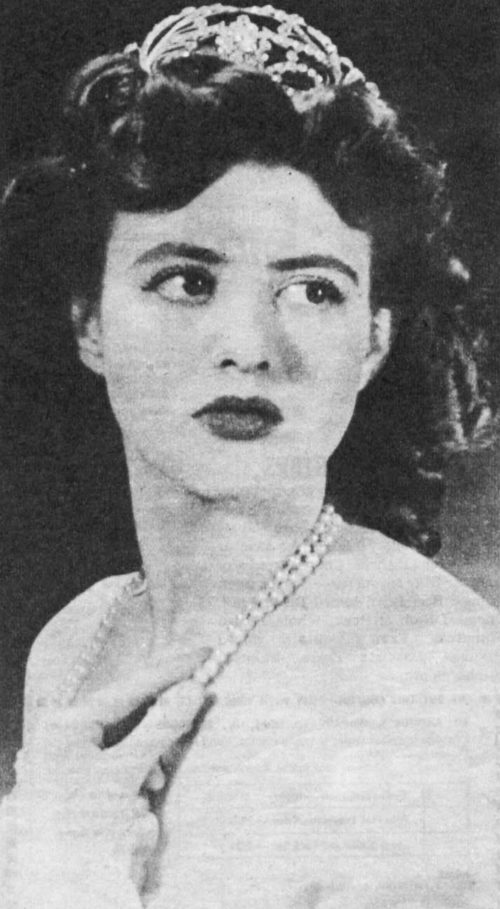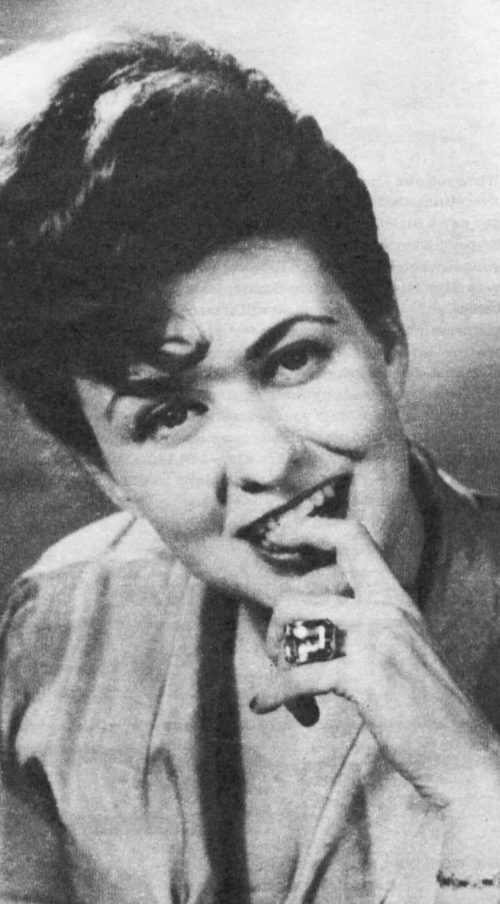Turning the corner to Coronation Street
Patricia Phoenix, straight-talking Elsie Tanner of Granada’s Coronation Street, writes about the toughest days of her life — the long years of provincial tours and repertory


WHAT makes a girl give up the security of a nine-to-five office job to go into the theatre? What makes a girl defy the advice of her family for a profession as unpredictable as acting?
Ask any actress — and you’ll probably get a different answer every time. We all have our own reasons.
My reasons?
Well, I suppose they were mixed.

First and foremost, I had a compulsive need to act. I always have had — and I hope I always will have.
Then, of course, I’m an explosive, emotional person — and if my exploding emotions can be channelled to entertain people on stage or in front of a camera, then so much the better for everybody.
And finally, I am an ambitious person. I was determined to get to the top, right from my early teens. And the theatre seemed to be the most likely way of getting there.
I suppose it’s odd, really. You see, I’m not a “theatrical type”. I loathe those theatrical parties where people call you “dahling” and drown you in insincere flattery, then stab you in the back the minute you turn round.
I loathe people who “gush”. I loathe the falseness which is so prevalent in many parts of the theatre today.
That’s why I enjoy Coronation Street so much. Not one of our team is the theatrical type, either. Maybe that’s why they play their homely down-to-earth characters so convincingly.
When I decided to become an actress in my early teens, that aspect of theatrical life was, of course, as foreign to my experience as the moon.
I was wide-eyed, naive and innocent — and all that I could see were the bright lights of fame ahead, just waiting to announce my name.
I got my first professional break on radio in Manchester — and I think I got it, as so often happens, by sheer cheek. I was 14 at the time — and had written for an audition.
They agreed to hear me — but I couldn’t find a speech that I thought was suitable. So I wrote one for myself — as Lady Jane Grey, speaking from the scaffold.
I think they were so taken aback at my nerve that they gave me a part in a play. And a number of broadcast plays followed.
My full-time professional career as an actress started when I was 18 — with a company, called Manchester Arts Theatre, doing one-night stands in Service bases all over Britain.
It was an incredible nonstop life of acting, eating and sleeping. But I loved every minute of it. It may not have been the glamorous theatrical life that I had imagined, but it was different, and it was exciting.
The going could not have been tougher. The producer was magnificent — but ruthless. Nothing mattered to him but the theatre.
Remorselessly he analysed every failing that I had. I used my hands too extravagantly, he said. So I had to rehearse with them tied behind my back.
I stooped too much when I was registering emotion, he said. So I had to wear a harness that bit into the skin of my throat every time I leaned forward!
It was with that company that I learned the lesson which every real actress must learn — absolute dedication to the theatre.

Life on tour had its lighter side of course.
I remember one night, at Cirencester, leaning against a piece of scenery just before the curtains opened, while a stagehand was making frantic last-minute adjustments to the set behind me.
The curtains opened, I moved away from the wall — and left my dress behind me. The stage-hand had nailed it to the floor!
The first real challenge of my career came after about a year with that company, when I was asked to play a 38 year-old woman in Clemence Dane’s Granite.
People outside our company laughed when they heard about the casting, and said that I couldn’t do it. I hadn’t got the guts, or the stamina or the ability, they said.
I’m glad they did. I couldn’t have asked for anything more likely to inspire me to succeed. The part was a roaring success, and as a result I was invited to play it at Chorlton Repertory, Manchester.
In the years that followed I worked in repertory all over the provinces. I never made the big-time in the West End — but I got more than my share of success in the North, and I played most of the parts that actresses dream about playing.
My favourites?
Blanche in Tennessee Williams’ A Streetcar Named Desire, and Sadie Thompson in Somerset Maugham’s Rain.
Not all the parts I’ve played have been dream-parts, mind you. Some of them have been nightmares.
Like most actresses I was usually short of money, and that meant doing small parts in films — usually horror films.
It was a most unnerving experience, getting mixed up with werewolves and vampires and monsters from the other side of the solar system.
Particularly as I invariably found myself getting eaten up by one of them before the end of the picture!
On one occasion, in Wales, mind you, I nearly found myself in the middle of a real-life ghost story. It happened when I moved into new theatrical lodgings.
I went downstairs for the first meal of my stay and was halfway through my boiled egg when the owner of the house suddenly hissed at me and told me not to move.
“There’s a ghostly hand poised right above your head and you’re surrounded by a pink aura,” he said.
I got out of there in a hurry. He was, I discovered later, a leading spiritualist!






